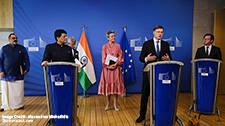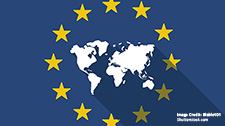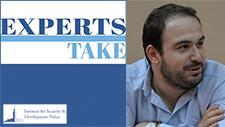No, the War in Ukraine Is not about NATO

Svante E. Cornell
Introduction:
Russia’s invasion of Ukraine has led to widespread condemnation and an unparalleled outpouring of support for Ukraine. At the same time, a motley crew, including some academics and former U.S. officials, has essentially blamed the war on the West, and in particular NATO enlargement. The argument is basically that Russia would not have become so aggressive if Western powers had been more accommodating. This line of thinking, however, is simply incorrect.
That’s because Russia rediscovered its imperial vocation before NATO enlargement, and the war in Ukraine is, in fact, about Putin’s great power ambitions.
Russian leaders have emphatically argued that NATO countries, led by the United States, violated assurances made to Moscow at the end of the Cold War that the alliance would not expand to the east. This claim, however, has been debunked as a myth. Even the last Soviet leader, Mikhail Gorbachev, has denied that the issue of NATO enlargement was even discussed at the time. Russian President Vladimir Putin himself did not have much to say about NATO enlargement until his infamous speech at the 2007 Munich Security Conference.
Related Publications
-
Trade, Connectivity and Supply Chains in EU-India Relations
In the decade and a half since 2007 when the EU and India first started their FTA negotiations, the world economic order has undergone a sea change. During that period, […]
-
The Limitations of India and Russia’s Transactional Relationship
Since Russia’s unprovoked invasion of Ukraine in February 2022, it might seem as though ties between India and Russia have strengthened. While much of the West isolated Russia, India-Russia energy […]
-
The Political Split at the Heart of Taiwan’s Struggle against Foreign Disinformation
Taiwan’s struggle against foreign disinformation and concerns about China’s impact on its 2024 election has received much international attention recently. This issue brief examines the domestic and international politics behind […]
-
What I heard in Munich: Europe gets a brutal awakening- Anna Wieslander
The recipe of the day at the Munich Security Conference (MSC) was to strengthen “the European pillar” in NATO, a concept that has been floated for many years but with […]
-
Continuity and Change in Indonesia’s Past, Present, and Future Foreign Policy Agenda: An Interview with DR. TUFAN KUTAY BORAN
Ahead of the upcoming Indonesian presidential elections on February 14, 2024, ISDP’s Asia Program intern Nolwenn Gueguen sat down with Dr. Tufan Kutay Boran, Lecturer at the Department of Social […]




